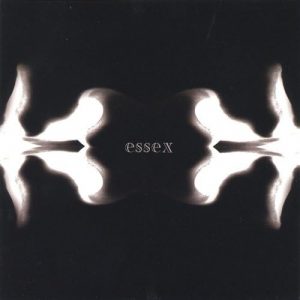Published on Jul 15, 2005
Jonathan Geer is a composer/arranger; a “film score” musician.
Essex is Geer’s debut album of scores, and is not written
for any motion picture. But listening to the record, it does sound
like music for a film, or at least a story — and it is, for an old
story of a whaling ship named the Essex.
Before proceeding further with the review, it is imperative to
give a brief description of the story of the Essex, without which
the review and the album itself would sound as meaningless as
watching a Jennifer Lopez video without Lopez herself being in
it.
Essex was a whaling ship that left the coast of Nantucket,
Massachusetts in 1819 on a two-and-a-half-year voyage to the South
Pacific to hunt Sperm Whales. The ship, however, met a tragic end
when it capsized after being attacked and hit by a Sperm Whale.
Though the crew members survived the attack, they fell prey to
dehydration, starvation and strife, and most of them died, with
just eight of the twenty-one men aboard surviving to tell the story
of the cataclysm in all its gory entirety. The story is long and
can be accessed on a number of sites that show up upon “Googling”
the word “Essex.”
Moving on to the present discussion,
Essex musically tells the story of the ship from the first
song — “Nantucket” — to the last — “Captain Pollard” (the
captain of Essex) — and is hence best enjoyed if the story is
known.
Essex, like film scores in general, is full of lush orchestral
arrangements. But all the music is performed by Geer alone. Hence,
electronics are heavily involved, compensating for the standard
real-life ensemble of 100 musicians playing together. Geer however
is smart, and does not try to create a whole army of philharmonic
players on his lone laptop. Instead, he has taken a different
approach to composing, much like the minimalist-composers did back
in the late-sixties/early-seventies; his compositions incorporate
unusual sound effects, rather than electronically generated
full-blown string-and-brass arrangements.
As a result of Geer’s extensive use of sound effects to portray
the different — mostly cataclysmic — events in the journey of the
Essex, most of the numbers on the record could very well be
mistaken for sound snippets from a Nine Inch Nails, (post-Kid A)
Radiohead, or Bjork LP. This makes the music not only interesting,
but also all the more palatable to folks who find film scores
boring.
Cuts like “Dehydration” (depicting the slow death of the crew
due to lack of drinkable water), which has whale noises and sounds
of shoveling sand, and “Casting Lots” (a song for the survivors,
who, in their desperation resorted to cannibalism by drawing lots
to see who should next be eaten, with the unlucky candidate to be
shot by one of his companions), which has effects resembling sounds
of grunting and gorging men, reminds of the avant-garde composers
of the nascent electronic age who resorted to using sounds rather
than music for their compositions.
There are tracks, like “Departure,” “The Attack,” “The Island”
and “Homecoming” that have “trip-hoppy” beats, like that of a
creepy Massive Attack or a Sneaker Pimps song, and others like
“Nantucket,” “Essex Theme” and “Captain Pollard” that are classic
film-scores, complete with emotionally drenched strings, flutes,
percussions, and recurring themes.
Essex is not a usual “film score” record; nor is it a “pop”
album. It has the body of the former and the soul of the later. It
is a mix-tape of fine compositions, uncanny electronics, and
unearthly sound-effects.
Essex makes for an interesting listen, and would enhance the
visual impact to the story of the Essex, if ever it is made into a
movie.
[For more information, visit
www.jonathangeer.com]
